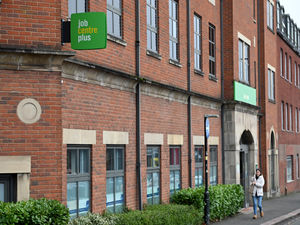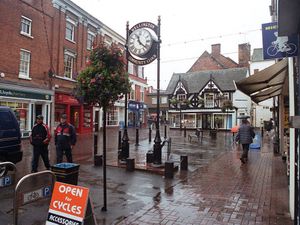Bleak Christmas for Midlands hospitality and long winter for businesses, say chiefs
Tier 3 measures being introduced across swathes of the West Midlands promise a ‘bleak Christmas’ for the hospitality industry, business leaders have said today.
The chief executive of the Black Country Chamber of Commerce, Corin Crane, said: "It is going to be a really hard winter for businesses.
Local authorities across the region including the whole of the Black Country and Staffordshire, will enter Tier 3 restrictions next Wednesday.
More Covid-19 coverage:
Paul Faulkner, chief executive of Greater Birmingham Chambers of Commerce, said: “We’re hearing from businesses that these measures promise a bleak Christmas for the hospitality and visitor economy sectors (and their wider supply chains).
“We will continue to urge the Government to ensure that every measure is correctly targeted and backed by scientific evidence and deliver enhanced levels of support for those businesses that will be hardest hit during this vital trading period.
“The grants currently available through the national schemes will not even cover the rent for many businesses who are already facing severely depleted or non-existent reserves after 10 months of Covid-19 restrictions."
Mr Crane said: “This will be hard news for many in the region and our businesses, especially in the build up to the Christmas period.
Trigger
“The hospitality industry had warned that placing regions into Tier 3 could wipe out a big part of the industry and trigger many of job losses after Christmas. This sector has already shed 660,000 jobs across the country this year.
“But given the prevalence of the virus in the region, we were anticipating that the Black Country may be placed into Tier 3 following the national lockdown."
Mr Crane said businesses must be given an indication of how to get out of Tier 3.
“The Government must take the opportunity to finally fix the test, trace and isolate system. Businesses have played their part and invested – at a time when cash flow is limited – to become Covid-secure, but the important thing now is that everyone stays safe and businesses access the support available to them.
“We will continue to be there to help and support our members and businesses across the Black Country," he stressed.
Richard Butler, the Confederation of British Industry's regional director for the West Midlands, said: “For many businesses in the West Midlands, going into toughened tiers while waiting for a vaccine will feel like suspended animation.
Rescue
“Some parts of the economy, such as retail, can begin to reopen and look towards a recovery. It gives our high streets a chance to rescue some of the vital festive trading period.
“But for other businesses the ongoing restrictions in Tiers 2 and 3 will leave their survival hanging by a thread. Hospitality will remain frozen. And supply chains that cross regions in different tiers will be hit even if they don’t face direct restrictions.
“It’s vital that these firms receive the financial support they need to make it through to the Spring. Clarity about ongoing employment support, including the Job Retention Bonus, will help protect as many jobs as possible. Businesses need to know what support will be there through to March and beyond in advance, rather than taking it down to the wire.
“Lessons must be learned from previous local lockdowns. Boundary lines between different tiers need to work on the ground. Trigger points for exiting the higher tiers must be transparent.
“Those decisions will need to be clearly communicated each fortnight and taken collaboratively between local, regional and national leaders. Most importantly, evidence must be open and transparent – the cost to jobs is only justifiable if it has a material impact on health.
“Liverpool’s shift to Tier 2 is clear evidence that mass testing can make a real difference on the ground.
“So there is encouraging news on mass rapid testing and vaccines, and it’s vital to protect jobs and businesses with an end in sight.”




